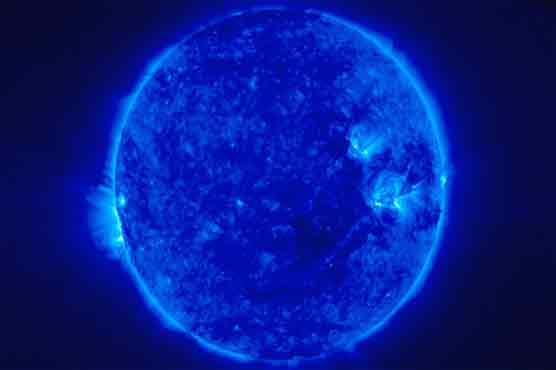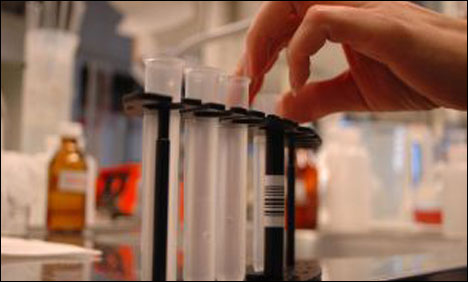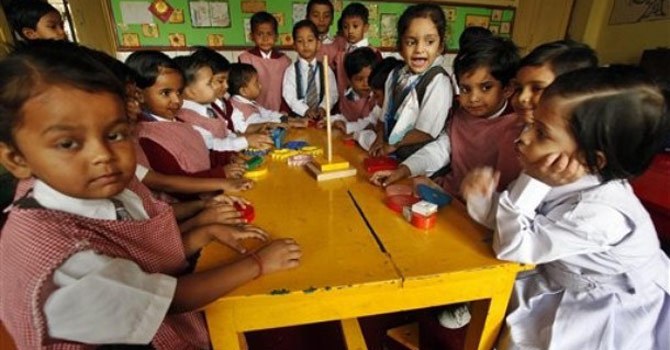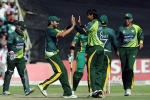- Web
- Humsa
- Videos
- Forum
- Q2A



Europe launched its first space weather coordination centre Wednesday to raise the alarm for possible satellite-sizzling solar storms that also threaten astronauts in orbit, plane passengers and electricity grids on Earth.
Though impossible to predict, a worst-case scenario mega-storm can happen at any time, leaving the world without Internet, telephones, television, electricity and air and rail transport for days on end.Limited precautions can be taken, but early warning is key, say experts at the European Space Agency (ESA) which runs the centre from Brussels.
"A pilot can always land a plane, because they have alternatives (to satellites) for navigation, but if they get the disturbance without warning, at the wrong time, that can be dangerous," Juha-Pekka Luntama, head of ESA s space weather division told AFP at the launch.
Even a slight satellite glitch can put navigation out by 100 metres (yards), enough to miss a runway.
Earth s atmosphere and magnetosphere protect the planet from radiation released during solar flares and geomagnetic storms, some of the most severe forms of space weather.Smaller eruptions usually have little noticeable effect -- perhaps slight problems with car navigation systems or mobile phones.But a major solar storm on the scale of an event in 1859 that crippled global telegraph systems could have severe impacts today.
A "coronal mass ejection", which sends electromagnetic radiation flying towards Earth at a speed of some 2,500 kilometres (1,500 miles) per second and plays havoc with long transmission lines, caused surges on telegraph lines so strong in 1859 that offices caught fire and operators received electric shocks.Such super storms happen "only very occasionally, perhaps once or twice a century," according to ESA s human spaceflight director Thomas Reiter.
Luntama added that the most severe storms statistically happen around the solar maximum, a period of greatest activity in the 11-year solar cycle, where we are now."In some ways you can say that the next two years is the time period that a solar event is more likely," he said.An 1859-like storm today could claim about 50 to 100 satellites,10 percent of the total in orbit, at a cost of billions of euros, according to ESA. But probably the biggest threat to Earth lies in electric power grid surges.
"In the worst case, what could happen is that the transformers in the power grid are damaged and in that case, replacement of the transformers can take weeks or months," said Luntama.Even if only a small part of the grid is damaged, overloading in neighbouring systems can lead to more blackouts that spread domino-like, such as the nine-hour power blackout in Quebec in Canada in 1989.
Astronauts orbiting Earth on the International Space Station (ISS), closer to the source of the radiation, could be at high risk of a severe solar storm, as could plane crews and passengers flying over the polar regions.Precautions would include turning off satellites to lessen the risk, reducing the load on power grids, astronauts taking cover in well-shielded part of the ISS, and planes being diverted or even grounded if communications become unreliable.
Once witnessed by space weather watchers, the fallout from a solar storm takes between 17 and 48 hours to reach Earth, depending on its severity.The coordination centre, a central point for space weather enquiries, will draw on the expertise of dozens of European universities, research institutions and private companies. A similar service already exists in the United States.For the moment, the ESA service, funded by 14 member states, is free.
The centre started operating six months ago and is expected to be fully operational by 2020, part of wider, multi-billion euro ESA system that also tracks objects in space that pose a collision threat.
 An Australian scientist said Wednesday he had discovered a way to turn the HIV virus against itself in human cells in the laboratory, in an important advance in the quest for an AIDS cure.
David Harrich from the Queensland Institute of Medical Research said he modified a protein in HIV that normally helps the virus spread, into a "poten..... Read more
An Australian scientist said Wednesday he had discovered a way to turn the HIV virus against itself in human cells in the laboratory, in an important advance in the quest for an AIDS cure.
David Harrich from the Queensland Institute of Medical Research said he modified a protein in HIV that normally helps the virus spread, into a "poten..... Read more
 Fluoride in some toothpaste and mouthwash, believed to prevent tooth decay, may actually be ineffective as the so-called protective layer it forms is too thin, scientists say.
Experimental physicist Frank Müller and colleagues from Saarland University in Germany point out that tooth decay was a major public health problem worldwide, the journal La..... Read more
Fluoride in some toothpaste and mouthwash, believed to prevent tooth decay, may actually be ineffective as the so-called protective layer it forms is too thin, scientists say.
Experimental physicist Frank Müller and colleagues from Saarland University in Germany point out that tooth decay was a major public health problem worldwide, the journal La..... Read more
 Smoking "rots" the brain by damaging memory, learning and reasoning, according to researchers at King's College London.
A
study of 8,800 people over 50 showed high blood pressure and being
overweight also seemed to affect the brain, but to a lesser extent.
Scientists involved said people needed to be aware that lifestyles could
damage the mind as..... Read more
Smoking "rots" the brain by damaging memory, learning and reasoning, according to researchers at King's College London.
A
study of 8,800 people over 50 showed high blood pressure and being
overweight also seemed to affect the brain, but to a lesser extent.
Scientists involved said people needed to be aware that lifestyles could
damage the mind as..... Read more












 Clean Chit (Faisal Raza Abidi ...
Clean Chit (Faisal Raza Abidi ...  Akhir Kiyon - 16th December 2...
Akhir Kiyon - 16th December 2...  To The Point - 16th December ...
To The Point - 16th December ...  Capital Talk â
Capital Talk â  Kal Tak - 16th December 2013
Kal Tak - 16th December 2013  Bay Laag - 16th December 2013
Bay Laag - 16th December 2013  Kharra Sach - 16th December 2...
Kharra Sach - 16th December 2...  Awaam - 15th December 2013
Awaam - 15th December 2013 





 Gold Miner
Gold Miner  Superbike GP
Superbike GP  Whipsaw Fighter
Whipsaw Fighter  PacMan
PacMan 


